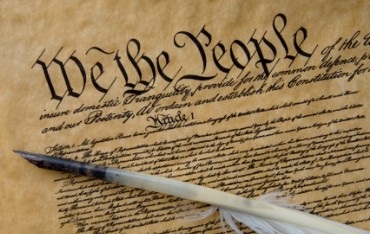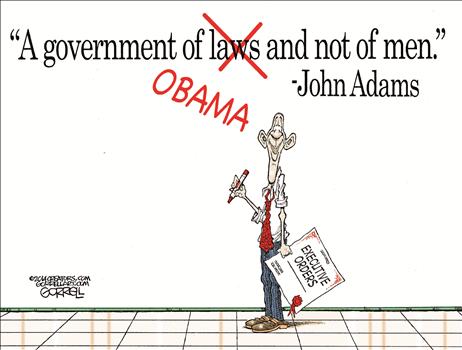
Last week, President Trump spoke to a crowd of young conservatives at a Turning Point USA (TPUSA) conference in Washington, DC. In the process of criticizing former special counsel Robert Mueller, he said the following: “Then I have an Article 2, where I have the right to do whatever I want as president.”
He was referring, of course, to the second article in the US Constitution. Well, I’ve read the Constitution (I won’t speak for President Trump as to whether he has done so himself or if he’s just relying on what others have told him) and I would like to offer a synopsis of what is contained in Article 2 as a public service.

Section 1 authorizes a president and vice president, details how they will be chosen (what we call the electoral college, although those precise words aren’t used in the document), gives the qualifications for serving, deals with how to proceed if either the president or vice president must step aside, says they will be paid to serve, and provides the words of the constitutional oath each must take, focusing on preserving, protecting, and defending the Constitution. There is nothing in this section about presidential authority.
Section 2 makes it clear that the president is Commander in Chief of the armed forces, but only when called into service (which is the prerogative of the legislative branch, the only branch that can declare war). The president may get opinions from his cabinet officials who serve in the executive branch and can grant reprieves and pardons; however, that doesn’t apply in cases of impeachment.
He can make treaties with foreign countries, but only with the consent of 2/3 of the Senate. He can nominate ambassadors, federal judges, and other public ministers, but again, he must receive the consent of the Senate for each one, this time by a majority, not 2/3. He also can fill vacancies in those offices, but only as a temporary measure; their tenure ends when the legislative session ends.
What does Section 3 allow the president to do? He can voluntarily offer information on the State of the Union (which every president does each January) and suggest legislative action on whatever measures he deems important. It is the legislature, though, that must pass all laws; Article 1 does give the president veto authority, but it can be overridden by 2/3 of each house of Congress. On extraordinary occasions, he can convene Congress and also adjourn the Congress if there is disagreement as to when to adjourn. The president is the one designated to receive ambassadors and other public ministers and “he shall take care that the laws be faithfully executed.” After all, he heads the executive branch, not the legislative or judicial branches.
The final section, Section 4, explains impeachment and removal from office as follows:
The President, Vice President and all civil Officers of the United States, shall be removed from Office on Impeachment for, and Conviction of, Treason, Bribery, or other high Crimes and Misdemeanors.
And that is the entirety of Article 2 of the Constitution. There is nothing contained therein that gives the president authority to do whatever he wants. Until the twentieth century, presidents pretty much followed their limited authority. The break began with Theodore Roosevelt, who felt that if he wasn’t explicitly forbidden to do something by the Constitution, he could go ahead and do what he wanted. That was followed by Woodrow Wilson with his new interpretation of the Constitution based on evolutionary philosophy: because needs change, we shouldn’t be bound by an “old” way of thinking.
The Great Depression gave Franklin Roosevelt an excuse to do things on his own. A prime example was calling in all gold owned by private individuals—purely by executive order.

Then there was Barack Obama’s infamous comment that if Congress didn’t do what he wants, he has a pen and a phone.

Yes, presidents have stepped out of line many times, but there needs to be pushback against doing so. Trump’s contention that he can do whatever he wants is even more brazen than what Obama said.
No, Mr. President, you cannot do whatever you want. This is a government that is supposed to operate on the rule of law. That foundational law is the Constitution, and it clearly limits what you can do.
Recommendation #1: Read the Constitution for yourself sometime and inwardly digest it.
Recommendation #2: If Recommendation #1 is rejected, at least surround yourself with advisors who both know and respect that document. It’s the least you can do on behalf of the rule of law.
